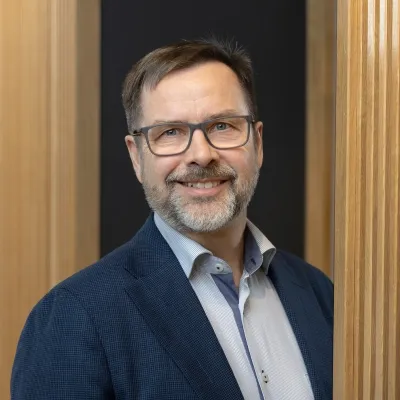Today, significant volumes of plastic waste are not recycled due to inefficient sorting in homes and businesses. Therefore, large amounts of plastics remain in the mixed waste and are not recycled but incinerated. The MSWPlast project aims to study the sorting capability and evaluate the recyclability of the industrially separated mixed municipal solid waste (MSW) based plastic waste fractions. This will promote sustainability and climate neutrality by reducing waste incineration and by providing feedstock for secondary plastic production.
The MSWPlast project, coordinated by VTT, is a Business Finland funded co-research project, where VTT, together with Finnish Environment Institute and supported by industrial partners Borealis, Remeo and Vantaan Energia, study the potential of recycling plastics from mixed MSW. The two-year project started in January 2023 and will continue until the end of 2024. The project is expected to increase knowledge on the recyclability of plastics from mixed wastes in Finland, creating a technical concept for processing and a systemic concept for introducing post-sorting into existing recycling value chains.
Great potential for recycling plastics from mixed waste
It is estimated that 16.6% of mixed waste in 2019 was plastics, in total 288 thousand tonnes, whereas the separate collection captured 74.5 thousand tonnes. Thus, sorting plastics from mixed waste offers an enormous potential for plastics recycling. A large proportion of the plastic fraction is plastic packaging waste, but mixed waste also contains other plastic items.
Today, Finland struggles with reaching the targets set in legislation for recycling of both municipal solid waste and plastic packaging waste. In Finland, the mixed waste is incinerated, and with its plastic content, emits fossil CO2 as a consequence. Separation of the plastic fraction from mixed waste for recycling creates business opportunities for the domestic industry and reduces the import demand of virgin raw materials for plastics production. This leads to a reduction in emissions related to extraction of raw materials, while also increasing raw material self-sufficiency of the Finnish industry. Thus, recycling plastics from mixed waste serves the target of increasing the recycling rates stated in the waste legislation while also supporting climate neutrality by reducing waste incineration.
“We need to look closer at all possible practices to enhance stronger material cycles. According to the recently published early warning report, the EU Commission considers that Finland is at risk of not reaching the recycling targets for 2025. The main reasons for low recycling performance are low capture rates of separately collected waste and the strong role of waste incineration,” says Hanna Salmenperä, Senior Advisor of Finnish Environment Institute.
Test run in Remeo’s sorting facility
MSWPlast will utilise results from a pilot test which will be conducted at Remeo’s sorting facility in Vantaa. In the test run, 500 tonnes of mixed waste from households and businesses will be sorted. This pilot run produces output material to be analysed, but also importantly generates data which can be used for leveraging insights on the feasibility of sorting mixed waste on an industrial scale.
“Plastics in household waste are evidently highly mixed and contain contaminants and difficult-to-recycle multi-layer packaging plastics, and it can be challenging to separate pure enough raw material for mechanical recycling. Therefore, the plastics separated from municipal solid waste may offer a highly interesting feedstock source for chemical recycling providing route to production of high-quality recycled plastics,” says Mika Härkönen, Professor of Practice at VTT.
“Increasing the availability of recycled raw materials is crucial to all domestic plastic producers in our journey to transform businesses towards circularity. Borealis SPIRIT Programme aims to increase the plastic recycling rate in Finland, and the MSWPlast project contributes perfectly to this target”, says Jaakko Tuomainen, Circular Plastics Manager of Borealis.




